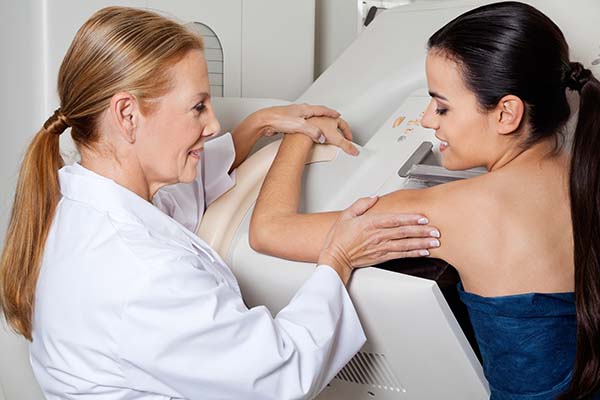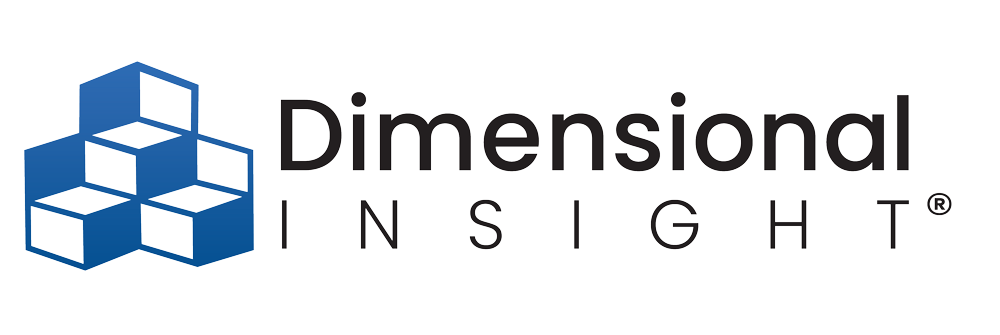Baptist Health Automates Accreditation with Business Intelligence


From Data Integration to Accreditation
Successful Accreditation and Recognition: After two years of work, the Baptist Health Breast Center achieved full accreditation with nine special recognitions from the National Accreditation Program for Breast Centers (NAPBC). The accreditation process was significantly facilitated by automated metrics, and the team received recognition for its creativity and innovation in healthcare quality metric development.
Automation Efficiency: The use of Diver Platform™ by Dimensional Insight allowed Baptist Health to automate the complex accreditation metrics, saving time and resources that would have been spent on manual chart review.
Data Integration: Baptist Health integrated data from 10 different sources, including radiology systems, EMRs, and pathology systems, into a usable format for accreditation metrics. This data integration was essential for generating the required metrics.
Efficient Metric Development: Dimensional Insight’s Visual Integrator facilitated the development of logic for the metrics, with data pulled from various sources, business rules, exclusions, and calculations defined within the tool.
Technical Validation: Baptist Health employed a robust data validation methodology, including data sampling and exception reports. This ensured the accuracy and consistency of the metrics.
User-Friendly Results: The final results were made accessible to users through Dimensional Insight’s DivePort web portal, offering online access, export to Excel, PDF saving, and in-depth data analysis capabilities.
Time and Resource Savings: The automation of metrics made accreditation attainable for the Breast Center, saving time and resources that would have been required for manual chart review.
Knowledge Transfer: The knowledge gained from this project in terms of data sources and patient flow will be applied to projects for additional tumor sites requiring automated quality metric development.
Background
Baptist Health South Florida is a regional health system with six acute care hospitals, 19 urgent care and diagnostic centers and six ambulatory surgery centers. It has 15,000 employees and 2,200 physicians in all specialties. People from all over South Florida, the Caribbean and Latin America come to Baptist Health for world-class medical treatment.
Baptist Health is currently building the Miami Cancer Institute, a state-of-the-art center that is scheduled to open in December 2016. This facility will bring all of Baptist Health’s cancer services under one roof, offering 305,000 square feet of clinical services and a 90,000 square foot research facility. It will also be the first cancer center in South Florida — and one of the few in the nation — to offer proton therapy to patients, which targets cancer cells with pinpoint precision.
Moving Forward with a Complex Accreditation Process
The Baptist Health Breast Center will be part of the new Miami Cancer Institute. The Breast Center wanted to pursue accreditation and certification early in the construction process. To do so, Baptist Health needed to show results for 11 measures for the National Accreditation Program for Breast Centers (NAPBC) and 36 metrics for certification from the National Quality Measures for Breast Centers. These measures and metrics were complex and it would be nearly impossible to manage these metrics manually. Baptist Health needed to automate them for successful accreditation.
The Solution: Tying Data Together with Diver Platform
“Diver provides us with a real flexibility to tackle a wide range of our healthcare system’s needs,” said Beth Willmitch, IT director, clinical BI, Baptist Health South Florida. “For the Breast Center project, we were able to link data from different sources, apply business rules to that data, and present it to users to help with the accreditation process.”
Many of the metrics for both the NAPBC and the NQMBC were related to what types of procedures were done (lumpectomies, mastectomies), therapies used (radiation, chemotherapy), timeliness of care (how long did it take from screening mammogram to diagnostic, etc.), and quality of care.
To gather data for the metrics, Baptist Health had to extract information from 10 different data sources, including its radiology system, EMR, pathology system, and more. All of this data resides in Baptist Health’s enterprise data warehouse system, which it then had to extract as needed for each individual measure and metric.
Baptist Health South Florida already had a business intelligence solution in place, Diver Platformtm (Diver) by Dimensional Insight, which it had been using since 2005. Baptist Health has more than 1,400 users using Diver in a multitude of ways throughout the organization—from determining opportunities for cost savings to improving physician performance to tracking readmissions and more. Baptist Health was able to use Diver to develop and automate the measures and metrics for this project.
“Diver provides us with a real flexibility to tackle a wide range of our healthcare system’s needs.”
Baptist Health developed a process flow for the development of the measures and metrics, which included the following steps:
- Create Functional Requirements
The functional requirements document contained not only business rules needed for the data, but also the technical information that would be helpful to the developers. For this project, Baptist Health created functional requirements for each individual measure and metric. - Data Analysis and Data Modeling
The data warehouse team created data models with relationships, indexes, data types, and more. The team also generated the data definition language and imported data from different sources that could be integrated into usable constructs. - Extraction, Transformation, Loading (ETL)
The data warehouse team then linked data from different sources by using the enterprise master patient index (EMPI) and service date. They also mined the data to get all of the different data elements and populate them in a particular schema. Next, Baptist Health had to integrate data from different internal and external sources, but the correct data was not always available from the patient ID number. This meant the team had to create multiple algorithms to match patients from external sources to the internal sources. - Metrics development
Baptist Health then used Dimensional Insight’s Visual Integrator to develop the logic for the metrics. Baptist Health pulled data from each of the data sources, with the business rules, exclusions and calculations all defined in Integrator. The data was then integrated, populating the final results. - Technical validation
Baptist Health’s data validation methodology included data sampling (which included 30% of the overall population), identifying any discrepancies and inconsistencies, and generating exception reports that helped end users improve operational processes. The hospital used several different tools during this process, including Dimensional Insight’s ProDiver to build the design for the metrics. - Metric release
The final results of the metrics and measures were then populated in Dimensional Insight’s DivePort web portal. In addition to the results, users could also access additional helpful information such as radiology or pathology reports, visit detail information at the EMPI level, and account detail information. From DivePort, users could access the results online, export to Excel, save them to PDF, or dive further into the data for further analysis. From that point, users could also see if certain metrics goals weren’t being met (such as time from diagnostic mammogram to surgical biopsy) and work to improve upon them.
“Our team learned so much about data sources and cancer patient flow. In fact, we will be applying our knowledge from this project to projects for the additional eight tumor sites that now need automated quality metric development.”
The Results: Full Accreditation with Special Recognition
Following two years of work on this project, and a full day spent with the surveyor from the NAPBC, the Baptist Health Breast Center was recognized with full accreditation and 9 special recognitions. Baptist Health was able to provide metric results that were previously only attainable through hours of manual chart review.
“The work that our team did was commended by the surveyor, as she said that no other NAPBC accredited center had automated metrics to this point, which made it incredibly easy for her to do her chart review,” said Willmitch. “In fact, it was notable that the Breast Center received full accreditation at the outset and did not have to go back and fix anything or answer any outstanding questions that the surveyor had for us.”
The automation of the metrics made the accreditation attainable. The Breast Center had given up on the accreditation prior to this because they did not have the time and resources needed for the manual chart review to meet the accreditation standards. The business intelligence and decision support team also received recognition for its creativity both within the Baptist Health network and outside the network through the NAPBC organization.
“Our team learned so much about data sources and cancer patient flow,” said Willmitch. “In fact, we will be applying our knowledge from this project to projects for the additional eight tumor sites that now need automated quality metric development.”
Download case study

Organization
Baptist Health South Florida
Industry
Healthcare
Location
Miami, Florida
Beds
1,761
Website
https://baptisthealth.net
Solution
Diver Platform
